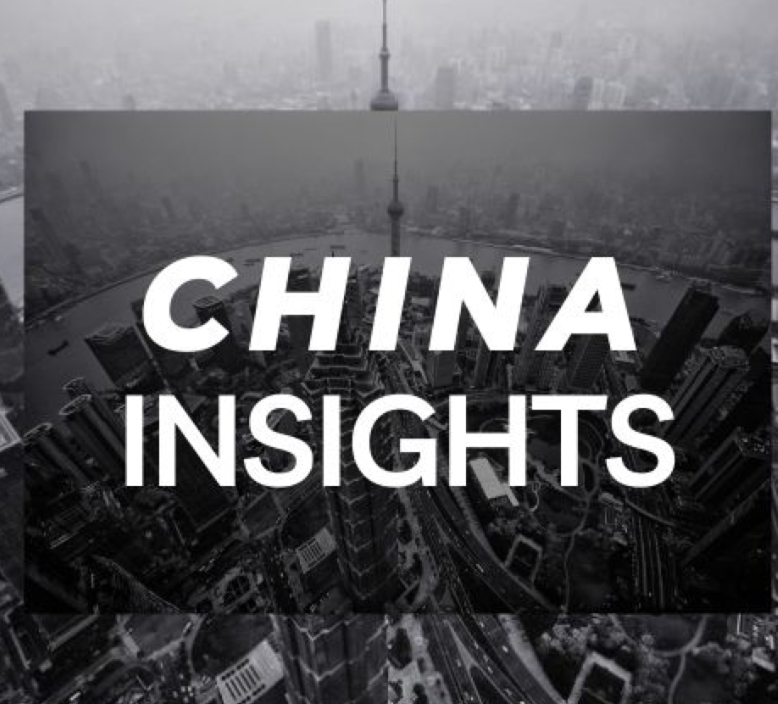Founded in Stockholm, Sweden, in 1970, Kreab is a global strategic communications consultancy with offices in 25 countries, serving over 500 global clients. Kreab advises on communication issues of strategic importance in business, finance, and politics, helping clients solve complex communications challenges and achieve their strategic goals. The Kreab Beijing team is well known for its track record of helping clients manage and strengthen their reputation through services spanning corporate communications, financial communications, public affairs, and social media. Contact Kreab at kchina@kreab.com, follow Kreab on WeChat (ID: KreabChina), or visit Kreab’s website at https://www.kreab.com/beijing.
SwedCham China Insights for the Week of December 4 - December 8 , 2023

Top news of the week:
China’s State Council stresses integrated development of domestic, foreign trade
December 4, 2023
China’s State Council stressed the integrated development of domestic and foreign trade during an executive meeting chaired by Premier Li Qiang. The meeting heard a report on overseeing the work of advancing high-quality development, discussed a draft revision on mineral resources law, and studied the work related to the industrialization of biological breeding.
Moody’s concerns on China's growth prospects ‘unwarranted’: official
December 5, 2023
China is disappointed with Moody’s move to change the country’s government credit rating outlook, as the Chinese economy has logged a continuous and steady recovery against the backdrop of weakening momentum of global economic recovery, a finance official said.
China says its visa-free entry policy brings tangible convenience
December 6, 2023
China’s visa-free entry policy has brought tangible convenience to citizens of five European Union countries and Malaysia, according to Wang Wenbin, the spokesperson for the Chinese Foreign Ministry. He said the ministry will continue to optimize the policy, actively create favorable conditions and further facilitate the flow of people between China and other countries. The latest update by December 8 reveals that China will extensively reduce entry visa cost by 25% for foreigners and has agreed with Singapore to apply two-way visa-free entry policy.
China unveils plan to promote high-level institutional opening-up of Shanghai FTZ
December 7, 2023
China’s State Council has issued a comprehensive plan to promote the high-level institutional opening up of the China (Shanghai) Pilot Free Trade Zone (FTZ) by aligning it with high-standard international economic and trade rules.
At China-EU summit, both sides agree to provide fair business environment
December 8, 2023
The first in-person meeting of its kind between the world’s two major forces and markets after the COVID-19 pandemic – the 24th China-European Union (EU) Summit – was held in Beijing on December 7. At the summit, China and EU agreed to provide a fair and non-discriminatory business environment for each other's companies.
Insight of the week:
Ratings agency Moody's downgraded its outlook for Chinese sovereign bonds from stable to negative on December 5, sending a signal to potential lenders that the risk of a default by Beijing has increased over the past year. Moody’s warned that Beijing would need to bail out local and regional governments and state-owned enterprises that were struggling with rising debts, hampering efforts to boost investment and growth. Moody’s also cited “increased risks related to structurally and persistently lower medium-term economic growth and the ongoing downsizing of the property sector.” It was the first change by Moody’s to its China rating since downgrading it by one notch to A1 in 2017. The lowering of its outlook does not automatically mean the ratings agency will downgrade China’s creditworthiness, but it increases the chances.
China’s Ministry of Finance called the decision disappointing, saying the economy would rebound and that the property crisis and local government debt worries were controllable. According to an official from China’s Ministry of Finance, the country saw its GDP up 5.2% YoY in the first three quarters of the first year after the COVID-19 pandemic. Recent forecasts from multiple international institutions all showed that China can achieve its growth target of around 5% this year. According to the official, China will remain an important engine for global economic growth in the future. The country’s vast domestic market has great demand potential, and the situation of employment and pricing is generally stable, said the official, adding that the economy’s internal impetus will continuously increase as the country accelerates promoting high-quality development.
S&P and Fitch, the other major global rating agency, both rate China A+, the equivalent of Moody's A1, and have stable outlooks.
